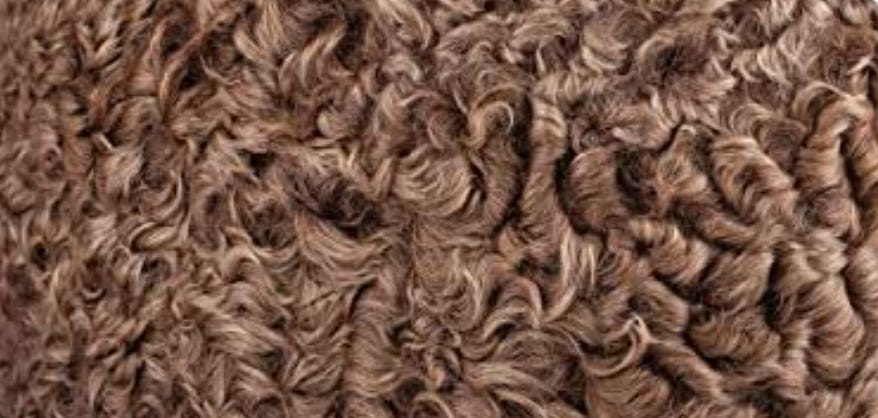CHAPTER 7: Local
A bumpy road rattled Grace awake. She fingered the wool blankets tucked around her and looked at Jackson. His eyes were on the road. “Sorry,” she said as she folded the blankets and placed them on the bench seat between them.
“No worries,” he replied.
The truck’s tires crunched gravel on a long curving driveway as lights from a settlement flashed between tree trunks like Morse code. A clearing revealed a two-story house clad with cedar shakes fading to silver and skirted with six feet of stone. Lichen grew on the coldest, wettest sections of the slate roof, glowing pale green then fading away as clouds scurried across the moon.
Motion lights flicked on as Jackson parked in a garage to the right of the main house. They got out and he lifted her suitcase from the F-350 and closed the garage door. They exited a side door where he ran his boots along a mud scraper installed in a grate laid over flowing water. Grace did the same.
“This way,” he said as a hard rain rang on the metal roof over a walkway lined with rocks and tulips, illuminated by motion sensors. Thunder growled as they passed a long neat stack of firewood. A flash of lightening followed.
Jackson ran his boots over a mat and opened the door to a mud room with stacks of wood and three large baskets of kindling lining the exterior wall. Fire-fighting gear took up the back wall next to a partially opened door through which Grace saw a washer and dryer stack, an oversized sink, a large shower. Terry bathrobes hung on pegs next to an oversized cast iron radiator.
Jackson helped Grace out of her coat, pointed to a bench. “You can take your shoes off there,” he said as he hung her coat on a peg and his sheepskin jacket one peg over. He paused, studied how the two nestled together. He moved his jacket to the next peg where the folds of Grace’s black wool coat barely touched the suede of his sheepskin. Grace pretended not to notice as he lifted his jacket yet again and moved it three pegs over, then placed his cowboy hat in the cubby above it.
“I’m seeing tan ribbons with white dots and stripes everywhere, seeing spots and stripes on hats and clothing. What’s up?” she asked as Jackson sat on the bench, pulled off his boots and placed them under the bench in line with others. Grace did the same. The stone floor was frigid through her socks.
“We’re the resistance to the madness of the barred owl management plan to kill all the striped and sparred owls,” Jackson said as he handed her sheepskin slippers. She tucked her feet in, welcoming their cozy warmth, while he pulled on his Uggs, adding, “We’re in solidarity with all the owls: spotted, striped, sparred.”
Jackson stood and opened a heavy inner door to a kitchen fitted with wood counters and a white gas stove. Charity Gale’s voice floated from a CD player on a shelf.
I just wanna speak the name of Jesus / ‘Til every dark addiction starts to break / Declaring there is hope and there is freedom / I speak Jesus
Your name is power / Your name is healing / Your name is life
Break every stronghold / Shine through the shadows / Burn like a fire
Golden candles glowed in cubbies built into the rock surround of a small fireplace. The room smelled of fire, beeswax, stew and warm bread. Something in Grace’s memory stirred.
A young couple looked up from where they sat at a long oak table, as did a one-year-old playing with blocks on a colorful rag rug. The old black lab beside him thumped his tail on the rug for Jackson. For Grace, he gave a small growl.
“Good boy, Scout,” said Jackson. “Grace Newman, this is my brother Tom and his wife Sara, and that’s little Billy.”
Tom stood, a younger version of Jackson, but his face was pale and drawn. The right sleeve of his green and gray Pendleton shirt was neatly folded back and pinned at mid-forearm. Tom extended his left hand and Grace gave it a quick shake while wondering how he’d lost his right arm.
The baby stared at Grace with huge brown eyes, then toddled over to his mother. She swept him up and he leaned against her, popped his thumb in his mouth. His hair was dark and curled with light perspiration.
Sara’s Nordic good looks were flawed by dark circles under her eyes. She wore a mid-calf-length felted forest green wool vest over a tan wool dress. Her leggings and slipper boots were charcoal wool. A hammered silver bracelet shimmered on her wrist. Ancient designs, thought Grace. Simple. Beautiful.
“Welcome to our home,” said Sara. “Glad you could stay with us, Grace. We’re having a nice venison stew. Have you eaten yet?”
“Thanks, yes, pizza at the library,” said Grace. “I’ve been on the road all day. Would it be OK if I took an early night?”
“Of course. I’ll take you up to your room,” said Sara, giving Billy to Tom who handled him awkwardly with one arm. The baby cried and Tom turned to Jackson who took him. “How are you today, Billy?” he cooed. “Having a good day? Yes, you are,” he said as he set him down on the rug with this toys. Scout watched intently.
Grace followed Sara down a hall and past a bedroom with crib in the corner. They took a flight of stairs with Jackson walking behind them, carrying Grace’s bag. At the top of the staircase, Grace looked down on the living room. A caramel brown leather couch and overstuffed chairs, with jewel-toned pillows and throws, rested comfortably on a red and purple Persian rug. In a corner, a Karakul lambskin-upholstered chair and ottoman—next to baskets of magazines and a table stacked with books—beckoned under the glow of a hanging light.
A rock thermo-fireplace rose 30 feet from the gleaming wood floors to the open rafters. Thick velvet drapes, the deep green of winter moss, held back the chill from twenty-foot tall windows.
Sara led Grace to the guest room half way down the hall and Jackson placed her bag inside. “Sleep well,” he said, leaving them.
“If you want to ride in with Jackson, he leaves for the mill around seven,” she said. “We breakfast starting about six. If you need anything and can’t find me in the kitchen or garden, knock on our bedroom door. It’s the room off the hall next to the kitchen.” She handed Grace her card, Sara’s Super Fresh Eggs. “You can also call or text me. Anytime, for anything.” She smiled and touched Grace’s arm. “It’s real nice to have you stay with us, Grace. Sleep tight.”
She closed the door behind her and Grace took in the large room. Douglas fir batten-board paneling, oiled to a golden glow, covered half the height of the walls, which rose to twelve-foot ceilings. A duvet was folded at the foot of an iron bed; its deep blues, purples and greens matching the pillow shams. A thick wool blanket in navy was tucked in tight over blue flannel sheets trimmed in white lace.
Blue and tan striped cushions covered a window seat below heavy golden drapes drawn against the cold. An intricately carved armoire and a small antique dresser were set against two walls. White linen covered the top of the dresser on which sat a pitcher of water and a glass next to a bowl of red apples, a cutting board, knife and napkins. A cast iron radiator and small stove in the corner gave off a comforting heat.
The bathroom was stocked with fluffy white towels and the floors were heated. A tray of scents sat on the side of a claw foot tub. A shower in the corner had yellow and cream tiles and a white cotton weave curtain.
Grace ran a bath while she unpacked and put away her things. The hot water relaxed her and, when it started cooling, she reluctantly got out, dried off. She turned back the bed covers and climbed naked between the blue flannel sheets. She could hear the voice of Joan Baez singing Woody Guthrie’s “Lonesome Valley” downstairs in the kitchen.
And there's a road that leads to glory / Through a valley far away / And nobody else can walk it for you / No, they can only point the way
You got to walk that lonesome valley / You got to walk it by yourself / Ain’t nobody here gonna walk it for you / You got to walk that lonesome valley by yourself
Grace lay listening to the muffled sound of laugher and music wafting up from below, then fell into the first deep and peaceful sleep she’d had in weeks.
<><><><>
Grace woke to a baby’s cry. She checked her phone and groaned. Six-ten and dark outside. The room had lost most of its warmth from the stove during the night, but the radiator was still doing its job. With an effort, she forced herself out of bed, chose a dark blue wool sweater over a white long-sleeved T-shirt, comfortable jeans. She pulled on wool socks and tucked her feet into the sheepskin slippers.
She pulled back the drapes and looked out the window. Mist hung over an emerald lawn running slightly downhill to a stand of deep green trees fronted by faded and dried blue hydrangeas, backed up by rhododendrons barely budding in white, pink and purple. Beyond the garden were dark hills and a menacing sky. Gray, wet, cold and green, thought Grace. A persistent theme.
Sara was pouring second cups of coffee for Tom and Jackson when Grace joined them in the kitchen. Little Billy gnawed on a pancake, happily smearing syrup on his high chair’s table. He stopped and studied Grace while Scout’s tail thumped the floor.
“Morning,” said the adults.
“Sit, please,” said Sara. “Coffee? Tea?”
“Black coffee for me,” said Grace.
Jackson handed Grace a mug of coffee across the big oak table. “How’d you sleep?” he asked.
“Good. Thank you,” said Grace. “It’s so quiet and what a pretty room!”
“Glad you like it,” he said.
“Help yourself to pancakes and fruit,” said Sara. “There’s a nice apple cake this morning. We also have oatmeal and I make good eggs.”
“I’d love some scrambled eggs.”
“Bacon with that?” asked Sara. “Toss some spinach, a little cheese into your eggs?”
“Sounds good. Everything, please, Sara,” said Grace.
“Sara raises chickens,” said Tom. “Mostly Buff Orpingtons, a few white and blues, and a Jubilee.”
“Gorgeous bird,” added Jackson. “You should see it.”
“She has ducks, some turkeys too,” said Tom.
“Very cool,” said Grace.
“Should you need it, here’s a key to the back door, and your schedule is in your email and posted on the fridge,” said Jackson. “We’ll do our best to keep you on time. You can come to the mill with me this morning. Take your time, but I like to leave before 7:30.”
Tom turned to his brother. “Jackson, isn’t there something I can do at the mill?”
“Not ‘til they clear you, Tommy. Organize that paperwork I brought home?” asked Jackson.
Tom stood and poured himself another cup of coffee. “Maybe,” he said, looking out the window. “I’m gonna feed the chickens.”
Sara glanced at Jackson as she placed a plate in front of Grace.
Tom caught the look, nodded to Grace, “Miss Newman,” he said, “have a good one.” He kissed Sara. “Back soon,” he said, grabbing his jacket off a peg and a dark gray cowboy hat from a cubby in the mud room. A crisp wind rustled the kindling before the door shut behind him.
“Jackson, would it be OK if I borrowed a coat? Ingrid was right. I’m gonna freeze.”
“Of course,” he said, turning to Sara. “Is Miss Newman a fur or a wool kinda gal?”
Sara stared out the door after Tom; then brought her gaze back to Jackson. “What? Oh, I don’t know, maybe wool. No, the fur poncho.” She smiled, “Definitely.”
Grace’s jaw dropped.
Jackson laughed. “Don’t worry, Grace, we’ll find you something.”
After breakfast, Jackson led her up the staircase to a large suite with a fireplace, sitting area and king-size bed dressed in burgundies and deep blues trimmed with white lace. The room was cold.
Jackson opened the walk-in closet and selected five coats, laid them across the bed—a fox and rabbit poncho, a mink jacket, a brown sheepskin, a chocolate brown coat, and a long silver gray wool coat.
“Sara said you should try the poncho,” he said, popping it over her head. Made from thin slices of pelts woven through a mesh netting, it was light as air. She studied herself in a mirror. The reds, golds and oranges in the natural colors of the pelts brought out the pinks in her skin and the reds in her dark hair. It was glorious. Jackson watched her without comment as she took it off and laid it across the bed. She picked up the sheepskin.
“Seriously?” he asked. “We’ll look like twins. He helped her into the chocolate brown coat. It accentuated her slim shape and dark hair and she was surprised at its lightness. “That’s a keeper,” said Jackson.
“Who do I thank?” asked Grace.
“Grandma, may she rest in peace. Hell, that sealskin’s three times your age. Unless you’re a native, it’s illegal to kill seals in the US—friggin’ Marine Mammal Protection Act—so sealskin coats are pretty much nonexistent. Mom loves that coat. It’s waterproof, indestructible. Sure beats all the PVC junk sold now.”
“This is your parents’ room?” asked Grace.
“Yeah, they’re in DC surrounded by silver bullet salesmen,” he said, looking out the window. “Hearings, committee markups, more hearings, federal crap. Piles of people are making decisions affecting our lives, most of them have never walked in a forest, seen a mill, or even talked to a logger.” He looked at her and thought, Just like you.
She blushed. she’d seen videos of mills, watched Big Timber on Netflix. She vaguely remembered meeting a few angry men at a conference. They’d said they were loggers, but she’d dodged them and now she dodged the question. “I’ve met a few loggers,” she said.
He resisted the urge to ask her to name one. “Listened to Oregon Public Broadcasting’s Timber Wars?” he asked.
“I have,” she said.
“They put together a decent series there, did a lot of interviews, but you need to be on the ground to understand it. People form opinions reading what you journalists write so I think that triggers a responsibility to experience things firsthand. Write what you know, right?”
He gazed out the window, thinking, She has no idea how much we have on the line. “We gotta get going,” he said. “Take these,” he said, handing her a dark brown beaver felt Stetson trimmed around the crown with turquoise beads and a pair of brown leather gloves lined with cashmere. He added fingerless wool gloves dyed a deep purple. “These are nice when typing, using your phone,” he said.
Grace made a quick stop in the guest room for her backpack, then followed Jackson downstairs where they said their good-byes to Sara and exchanged slippers for their boots in the mud room.
They left and waved at Tom who was surrounded by chickens, ducks and turkeys in a large red and black-trimmed coop. He nodded his head in their direction.
In the garage, Grace studied the shelves stacked with coils of wire, cases of oil and lots of spare parts. “Nice truck,” she said, admiring its bumps and bruises, its oversized tires with big lugs for better traction in snow and mud.
“You like it?” He took a hard look at it from the front. “Four-speed standard transmission with compound low for first.”
“Compound low?” she asked.
“So low it growls going downhill,” he laughed. “It’s got a 7.3 Ford diesel under the hood, built by Navistar, formerly International Harvester. Has over 200,000 rough wood miles on it, but that motor is nearly bullet proof—will run for a million miles if I remember to change the oil regularly. I know this to be true.”
“I’ll bet you change the oil regularly.”
“I do,” he said.
She ran her hand over the rusty ELF graffiti etched into the rear wheel well on the passenger side. “Souvenir?”
He grinned. “Trophy,” he said, opening the passenger side door. “Vamos, chica.”
Grace hopped in and they drove down the driveway, took a short bumpy road lined with drifts of white yarrow before turning onto the main highway.
Fog hung over the land as the low morning sun filtered through the tree trunks in bands of light alternating with shade. It’s like driving behind Venetian blinds, thought Grace.
They weaved between heavily wooded hills past a meadow dotted with white daisies and yellow dandelions, drifts of purple waves of lupine. A herd of elk moved in the shadows, idly making their way along the edge where the spear tips of bright yellow lilies pushed their way up from the moist soil lining a stream.
“Beautiful,” whispered Grace.
Jackson pulled over. “Clear cut,” he said, “Five years later. Mom doesn’t like Dad hunting too far from home so we created that meadow. We cleared and damned a stream to attract game. It’s thick now with deer and elk, but…”—he pointed south—“…brush is already reclaiming it. We’ll do a haircut and shave soon to keep it open.” He smiled. “Mom calls it Blue Meadow, but it’s just a clear cut plus time.”
“Her home is beautiful,” said Grace.
“Yes, she has a ‘fine eye’, Dad likes to say.”
“How many kids?” asked Grace.
“Four. Frank’s the oldest. He’s married to Rebecca and they have three kids now. Then there’s Phillip. He took his law degree at Georgetown. When they’re in DC, my parents stay with him, his wife Monica, and their two kids at their place in Virginia. Then there’s me. The youngest is Tom…” Jackson paused, distracted. “Lot on the line,” he said.
“Tell me,” said Grace, studying him. He was silent. She waited.
“Labor, fuel and equipment costs, legal fees, travel to friggin’ DC, all caught in cycles of inflation and litigation. We bid on timber sales, damn preservationists appeal. Only takes a stamp on a postcard to file an appeal, but we spend a bundle proving our harvest’s sustainable. Hell, college kids are earning credits filing appeal after appeal, shutting down whole towns. It’s a battle of time, economics and attrition. Derail enough sales and we eventually go out of business.”
Grace listened intently.
“Environmental impact reports, permit fees, fines, labor costs during down-time when we run out of raw material. Hell, we’ve trucked logs in from as far away as Montana. The greenies have moved on to climate change, carbon credits, gotten pretty good at market closures. Even though we comply with all the government regs, they love watching us jump through hoops for certification. Just another layer of bullshit.”
He looked out the window, took a long breath. “At least they called us essential workers during COVID and kept the mill running. Town got hammered though.”
He gripped the steering wheel so tightly his knuckles went white. “We’ve spent time and a quarter of a million defending six timber sales in the last three years,” he said, shaking his head. “We got two cleared including blow down on Hunger Mountain, the last place a lumberjack would choose to make a living. With legal fees, before we cut a single tree, we’re in a money pit. So, what’s the point? This ain’t no hobby.” He shook his head. “We hired night watchmen, but two Cats got vandalized. Insurance helped, but we’re out down time and the deductible—which was substantial—and the broker raised the premiums. Eco-terrorists claimed they’d spiked the trees. We checked each tree with metal detectors, but they’re using ceramic spikes now. Tom…” He stopped, then tried again, “My brother Tom...” He paused. “Then the fire,” he said. “Erica...”
“Who’s Erica?” asked Grace.
Jackson slammed the steering wheel with his fist. Grace jumped.
“Damn Hunger Mountain. Damn it all to hell,” he said, falling into a sullen silence.
She waited. He started up the truck. She touched his arm and he turned to her. “If you could fix this, everything, what would you wish for?”
He did not miss a beat. “Local control,” he said. “Control over our destiny, exactly what we promised ourselves when we established a Constitutional Republic.”
Well, thought Grace, I wasn’t expecting that.














